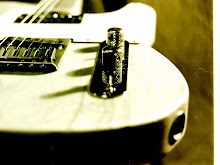A recent op-ed piece in The Boston Globe, “Love Music, Hold the Criticism,” by longtime Boston journalist Steve Almond prompted a wave of thoughts. Almond’s column dealt with the futility, and even misguidedness, of music criticism. While I don’t agree with everything he wrote, I do agree with some of his points.
Like Almond, I’ve done a fair amount of writing about music, both professionally and personally, over the last 26 years. Unlike Almond (at least in his early years, according to his piece), I’ve never viewed the music critic’s purpose to be one of tossing stinging barbs of superior sensibility or self-indulgent displays of verbal flourish, though evidence suggests that is certainly some scribes’ intent.
Trite as it might sound, I’ve always leaned toward the old ethic: “If you don’t have anything nice to say, then don’t say anything at all.” That doesn’t mean ignoring the atrocious or fabricating nice things just to meet a word count. But if I don’t like an artist’s music before even going in to a concert or reviewing an album, what’s the point in my writing about it – unless I have some kind of profound conversion experience (itself then possibly a worthy topic)? There’s enough crap around, aren’t we all better served by dedicating our limited time and attention toward the positively remarkable and the truly sublime?
The one notable exception to this in my experience goes all the way back to 1984 or ’85 when I was assigned to review a Joan Jett concert. This was around the peak of her career and the performance was something of a big event for the small city I was living in at the time. Few national rock tours ever came to town.
But I was no fan of Joan Jett. While I love gritty, straight-ahead rock and roll as much as the next person, I saw her as a low-brow, kitschy, MTV-fueled, rock poseur. I went to review the show because I had to, not because I wanted to.
Yet even then, as a 20-something novice music writer, I had enough scruples to know that I had to give her a fair shake. And I did. While I’m sure I did hurl a few amateurish barbs of overly verbose critical élan, the main gist of my review was that the show was better than I had expected – just not really my cup of tea. I went on to describe how Joan undeniably had stage presence and her band was more Rolling Stones-ish (or perhaps Dead Boys mixed with Mott the Hoople) than I had expected – both good things.
For the most part, however, I’ve always figured that my time and, more importantly, my readers’ time and the available editorial space is better spent shining the light on something truly inspiring, and then aiming to shed light on why it’s praiseworthy – for the edification of the uninitiated, the affirmation of the already converted, and even for argumentation with those of opposing view.
Of course, sometimes it is the critic’s role to flag the crud so the rest of us can steer clear of it. But this is most applicable when something is grossly over-hyped and so lacking merit that the shortcomings must be highlighted and explained.
As for Almond’s other comment that criticism of live music can’t begin to capture or explain the “feeling” an audience experiences, I agree – to an extent. The impossibility of wholly capturing in words the etherial magic of music in the moment doesn’t mean one can’t depict some of the spirit, energy and vibe of the occasion. No, there is no substitute for being there, feeling the experience in the interstitial spaces of your being. But when you can’t be there, a trusted critic’s rendering of the experience can stimulate your intuition and imagination – maybe even motivate you to make sure you are there the next time around.
With nearly an unlimited amount of music out there these days, we all need some guideposts and frames of reference – whether they are peer opinions posted on Amazon.com or more professional critiques. The key is to find those guides that resonate with your own sensibilities, so you can rely on their judgment and comments.
In the end, the best criticism – positive or negative – provides context, insight and food for thought; piquing interest and curiosity. I know not everyone shares my tastes and opinions, but if I adequately perform the critic’s role (as I see it), then people can decide for themselves whether or not to give my words credence ... and those who do will find some value in that.





No comments:
Post a Comment